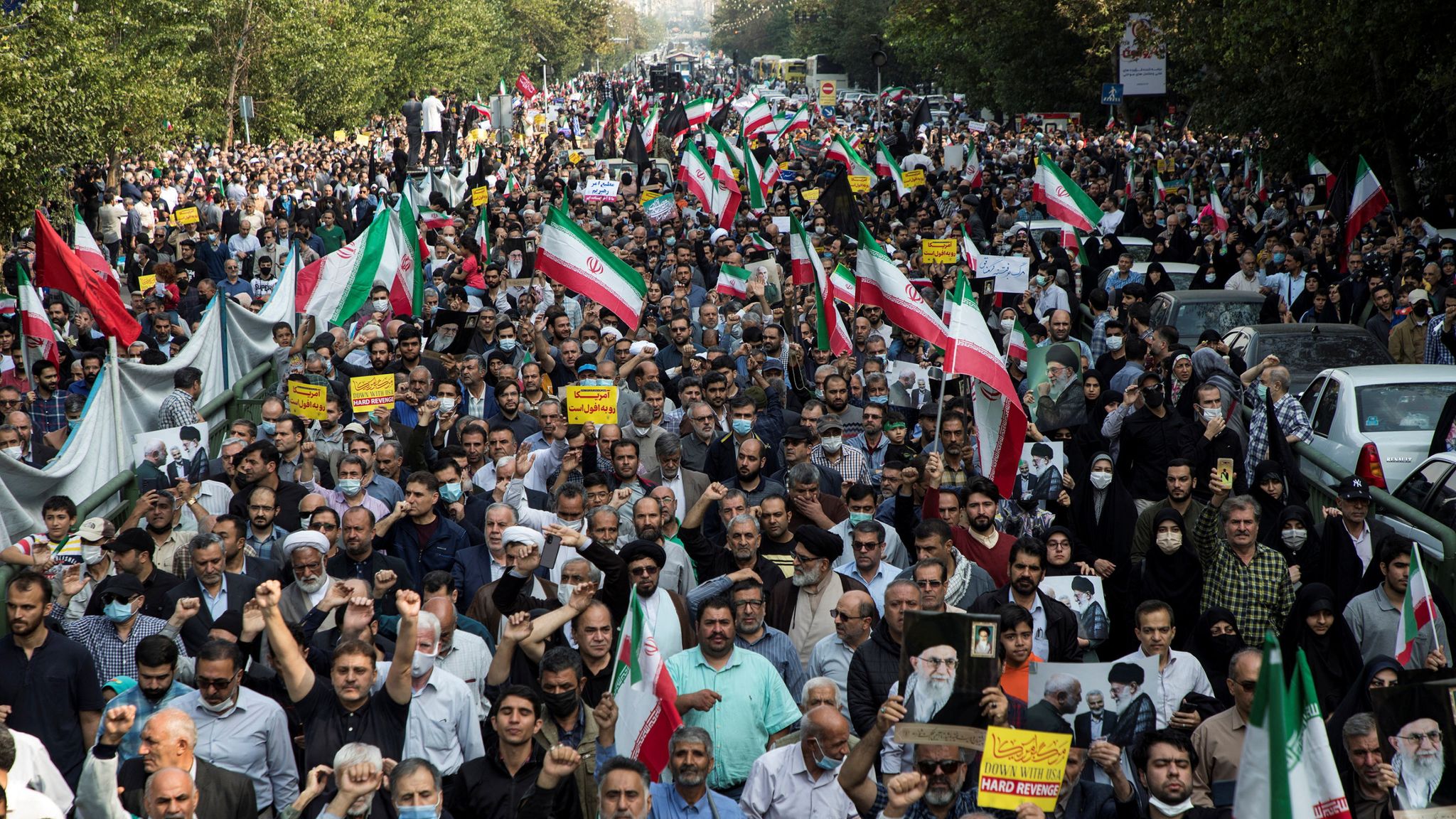While Iran’s nationwide uprising has entered its third month, the terms of “despair,” “hopelessness,” and “defect” are being reported by officials in various echelons of the regime’s political and military apparatus. A look at such recent remarks in the past week or so provides us with an insight into the utter challenges in the political and security establishment.
“Creating confusion, doubt, hopelessness, fear, and the sense of minority among the [regime’s] forces is one of the techniques used by our enemies,” said Hamid Reza Moghaddam-Far, a cultural-media advisor to the head of the regime’s Islamic Revolutionary Guards Corps (IRGC), in an interview on November 19 with the regime’s Entekhab website.
Using the regime’s terminology, he acknowleded that the ongoing protests are taking a grave toll on the ranks and file of the regime’s military and security forces, and their political tiers.
More recently, Supreme Leader Ali Khamenei delivered a speech to a gathering of IRGC paramilitary Basij units in an effort to boost their morale. The ongoing protests in different cities of Iran have been scenes of protesters standing up to the Basij and even attacking their sites.
“Recognize your power, get to know your enemies and discover the weak points of the enemy, who is trying to show he is strong,” Khamenei said, in an attempt at lifting their spirits. Khamenei cautioned the Basij members to not allow the “enemy” to infiltrate into their ranks and files, signaling the regime’s grave concerns in this regard.
Iranian regime President Ebrahim Raisi also had a similar tone in a speech delivered at a gathering of clerics on November 17. “The enemy’s strategy is to create a sense of despair… You all have to focus your efforts on turning this ‘we can’t,’ ‘it’s not possible,’ and ‘it won’t happen’ to ‘no, we can,’” he emphasized. The question here is what do Khamenei and Raisi know about the regime’s ranks and file that leaves them no choice but publicly voicing such words of utter vulnerability?
A sense of discomfort runs far deeper among the regime’s senior officials and military commanders than their forces on the ground. One IRGC official, who is described as an “advisor of the IRGC central command,” had some noteworthy remarks. “Today we are facing a generation that has been influenced and deceived by the enemy’s propaganda. This deception is not limited to the younger generation, but we, too, can also be deceived. If we lose hope in the future, then the enemy will have been successful in its efforts.”
Prior to him, Mahmoud Hosseinpour, the regime’s governor of Mazandaran Province in northern Iran, shed light on the status quo of despair among the regime’s officials. “Some of our directors have begun churning up analysis about what the future holds for us. They should listen very closely: if anything happens to Iran in the future, rest assured that the enemy will be coming after them first,” Hosseinpour warned on October 23 in remarks published by the state’s Ruydad website.
A number of senior clerics in the Iranian regime, such as Ahmad Alamalhoda, Khamenei’s representative in Iran’s second largest city of Mashhad, described the recent wave of repent among the regime’s forces as a gift from the heavens! “The issue of repent in a religious society is part of the nature of such a holy structure,” he said recently in words that can only be described as an attempt to save face.
Khamenei and Raisi are leading the regime’s pack in attempts to provide hope for their apparatus. In each and every opportunity they’re arguing that the “enemy” is behind the current unrest, protests, and revolution across the country. This “enemy” is actually “jealous” of the “endless accomplishments” of this regime under the Raisi administration, they add.
“The enemy is terrified and constantly sends us messages through various countries saying: please, don’t attack!” claimed IRGC chief Hossein Salami said on November 11 in remarks wired by the regime’s official IRNA news agency.
The top IRGC commander in Iran’s Isfahan Province followed: “We will arrest the Israeli prime minister and bring him to Iran with a leash around his neck!”, he said on November 20, without explaining the relevance of the context in present circumstances.
Mohammad Zahraie, head of the IRGC paramilitary Basij Force refrained: “Don’t worry! Don’t have any concerns in your hearts! Our [state] has a leader and he will protect our [state]”.
The result of this feeling is widespread, and with each passing, the statements are acquiring more aggressive tenor.
The Iranian people appear to be bolder in their relentless protests. The movement has continued for 70 odd days A senior IRGC commander Esmaeil Kousari, head of the Tharallah Headquarters responsible for the security of Greater Tehran, in a state TV interview about recent interrogations of arrested protesters:
“We would tell them that your parents are here to pick you up… these apprehended protesters would say ‘No! I don’t even want to go! Shortly, you yourselves won’t exist! Your days are numbered, and we will be in power!”

